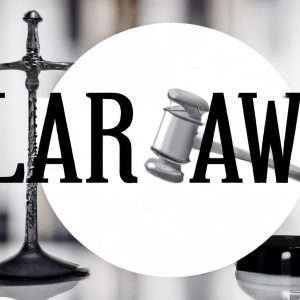In the complex landscape of estate planning, questions often arise regarding the ownership structures of various assets. Can a trust own a Roth IRA? This seemingly straightforward query delves into the intricate intersection of trusts and retirement accounts, posing important considerations for individuals seeking to safeguard their financial future. As seasoned practitioners in the field of estate planning, the attorneys at Morgan Legal Group in New York City navigate such nuanced inquiries with precision and expertise. Join us as we unravel the intricate web of trust ownership and Roth IRAs, shedding light on the implications for prudent estate planning.
Overview of Trust Ownership of Roth IRAs
When it comes to the complex world of estate planning, the question often arises: can a trust own a Roth IRA? The answer is yes, a trust can indeed own a Roth IRA. However, there are specific rules and considerations that must be taken into account when setting up this type of arrangement.
The primary benefit of having a trust own a Roth IRA is that it allows for greater control over the distribution of assets after the account holder passes away. This can be particularly useful for individuals who want to ensure that their beneficiaries receive their inheritance in a structured and responsible manner. Additionally, having a trust as the owner of a Roth IRA can provide additional protection against potential creditors or lawsuits that may arise in the future.
Legal Considerations for Establishing a Trust as the Owner of a Roth IRA
When establishing a trust as the owner of a Roth IRA, there are several important legal considerations to keep in mind. One key aspect to consider is the ability of a trust to own a Roth IRA. While technically permissible, it is important to understand the potential implications and limitations of this arrangement.
Some key include:
- Complexity: Holding a Roth IRA within a trust can add a layer of complexity to estate planning and administration.
- Tax implications: Trusts may have different tax treatment than individual Roth IRA owners, so it is important to consult with a tax advisor before proceeding.
- Beneficiary designations: Careful consideration must be given to the beneficiary designations within the trust to ensure compliance with Roth IRA rules and regulations.
Tax Implications of Having a Trust Own a Roth IRA
When considering the , it is important to understand the unique rules and regulations that apply in this situation. One key point to note is that a trust cannot be the owner of a Roth IRA, as the account must be held in an individual’s name. However, a trust can be named as the beneficiary of a Roth IRA, which may have certain tax consequences for the beneficiaries of the trust.
When a trust is named as the beneficiary of a Roth IRA, the distribution rules and tax treatment will depend on the specific terms of the trust and how it is structured. It is essential to carefully review the trust agreement and consult with a knowledgeable estate planning attorney to ensure that the trust is set up in a way that maximizes tax benefits for the beneficiaries. Additionally, it is important to be aware of any potential tax implications, such as income tax on distributions from the Roth IRA, and plan accordingly to minimize tax liability.
Recommendations and Best Practices for Utilizing a Trust to Hold a Roth IRA
When considering whether a trust can own a Roth IRA, it is important to understand the implications and best practices involved in utilizing this strategy. While it is technically possible for a trust to hold a Roth IRA, there are certain considerations to keep in mind to ensure the process is done correctly and to maximize the benefits.
One key recommendation is to work closely with a knowledgeable estate planning attorney who can help create a trust specifically designed to hold a Roth IRA. It is crucial to follow all IRS regulations and guidelines to avoid any potential tax consequences. Additionally, regularly reviewing and updating the trust documents is essential to ensure they align with any changes in tax laws or personal circumstances. By taking these precautions and staying informed on the best practices, individuals can effectively utilize a trust to hold a Roth IRA and secure their financial future.
Q&A
Q: Can a trust own a Roth IRA?
A: Yes, a trust can own a Roth IRA, but it is not very common.
Q: What are the benefits of having a trust own a Roth IRA?
A: One benefit is that it can provide additional asset protection for the Roth IRA funds. It can also allow for more complex estate planning strategies.
Q: Are there any limitations to having a trust own a Roth IRA?
A: Yes, there are specific IRS rules and regulations that must be followed, and not all types of trusts are eligible to own a Roth IRA.
Q: How does the ownership of a Roth IRA by a trust affect the distribution of funds?
A: The distribution rules for a Roth IRA owned by a trust are more complex and can vary depending on the specific terms of the trust. It is important to consult with a financial advisor or tax professional to ensure compliance.
Q: Can a trust owned Roth IRA be passed on to beneficiaries?
A: Yes, a trust owned Roth IRA can be passed on to beneficiaries according to the terms of the trust. However, the distribution rules and tax implications may be different than if the Roth IRA were owned by an individual.
Q: Are there any tax advantages to having a trust own a Roth IRA?
A: There may be potential tax advantages, such as the ability to control the timing and amount of distributions to beneficiaries. However, it is important to consult with a tax professional to understand the specific implications for your situation.
Closing Remarks
In conclusion, the question of whether a trust can own a Roth IRA is a complex and nuanced issue that requires careful consideration of both legal and financial implications. While there may be circumstances where utilizing a trust as the owner of a Roth IRA is advantageous, it is important to consult with a qualified financial advisor or attorney to ensure compliance with all rules and regulations. Ultimately, the decision to establish a trust-owned Roth IRA should be made thoughtfully and with a thorough understanding of the potential benefits and limitations involved. Thank you for exploring this intriguing topic with us.










